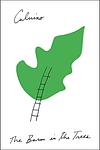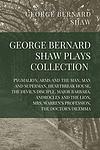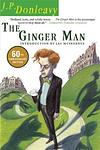The Greatest Italian, Irish "Fiction, Satire" Books Since 1950
Click to learn how this list is calculated.
This list represents a comprehensive and trusted collection of the greatest books. Developed through a specialized algorithm, it brings together 300 'best of' book lists to form a definitive guide to the world's most acclaimed books. For those interested in how these books are chosen, additional details can be found on the rankings page.
Genres
Satire is a genre of literature that uses humor, irony, and exaggeration to criticize and ridicule human vices, follies, and shortcomings. It is a form of social commentary that aims to expose the flaws and absurdities of society, politics, and culture. Satirical books often employ sarcasm, wit, and parody to challenge the status quo and provoke thought and reflection in readers. Satire can be both entertaining and thought-provoking, and it has been used throughout history as a powerful tool for social and political critique.
Countries
Date Range
Reading Statistics
Click the button below to see how many of these books you've read!
Download
If you're interested in downloading this list as a CSV file for use in a spreadsheet application, you can easily do so by clicking the button below. Please note that to ensure a manageable file size and faster download, the CSV will include details for only the first 500 books.
Download-
1. Waiting for Godot by Samuel Beckett
"Waiting for Godot" is a play that explores themes of existentialism, despair, and the human condition through the story of two characters, Vladimir and Estragon, who wait endlessly for a man named Godot, who never arrives. While they wait, they engage in a variety of discussions and encounter three other characters. The play is characterized by its minimalistic setting and lack of a traditional plot, leaving much to interpretation.
-
2. If on a Winter's Night a Traveller by Italo Calvino
The novel is a postmodernist narrative that follows the adventures of the reader, who is trying to read a book called "If on a Winter's Night a Traveller." However, the reader keeps encountering obstacles that prevent him from finishing the book, including printer's errors, censorship, and interruptions from other characters. The story is interspersed with the beginnings of ten different novels, each interrupted at a moment of suspense. The book is a meditation on reading, writing, and the nature of narrative itself.
-
3. The Third Policeman by Flann O'Brien
"The Third Policeman" is a darkly comedic and surreal novel about a nameless narrator who, after committing a murder to raise funds for his scholarly obsession with a bizarre pseudo-scientific theory, finds himself wandering in an eerie, nightmarish landscape. He encounters strange characters, including a pair of eccentric policemen who are obsessed with bicycles, and becomes embroiled in a series of increasingly absurd and ludicrous situations. The novel explores themes of existence, reality, and the nature of hell, with a twist ending that forces the reader to question everything they've read.
-
4. The Baron in the Trees by Italo Calvino
"The Baron in the Trees" tells the story of a young Italian nobleman who, in a fit of rebellion, climbs a tree and vows never to touch the ground again. He spends the rest of his life living in the treetops, observing the world from above, and engaging in adventures with bandits, revolutionaries, and lovers. Despite his self-imposed exile, he becomes a symbol of freedom and individuality, ultimately influencing the course of European history.
-
5. Selected Plays of George Bernard Shaw by George Bernard Shaw
This collection features selected plays by a renowned playwright, showcasing his wit, social criticism, and talent for character development. The plays touch on a wide range of themes, including class struggles, the complexities of love, the absurdity of war, and the pursuit of individual freedom. The author's sharp dialogue and satirical approach make these plays both entertaining and thought-provoking, reflecting his progressive views and his belief in the potential for societal change.
-
6. Good Behaviour by Molly Keane
"Good Behaviour" is a darkly humorous and compelling novel that delves into the dysfunctional lives of the St. Charles family. Set in the early 20th century, the story is narrated by Aroon, the youngest daughter, who chronicles her family's eccentricities, secrets, and the complex dynamics that shape their relationships. As Aroon navigates her way through a world of privilege and societal expectations, she grapples with her own desires and the consequences of her actions. With sharp wit and keen observations, the novel explores themes of love, betrayal, and the lengths people will go to maintain appearances.
-
7. That Awful Mess On Via Merulana by Carlo Emilio Gadda
This novel is a complex and richly detailed exploration of a crime in 1920s Rome, where an investigation into a theft and a brutal murder in an apartment building on Via Merulana becomes a sprawling narrative that delves into the social, political, and cultural fabric of Italy. The detective in charge of the case navigates through a maze of clues, red herrings, and eccentric characters, revealing not just the underbelly of Roman society but also the inherent chaos and absurdity of life. The narrative is characterized by its linguistic inventiveness, with a mix of literary Italian, Roman dialect, and technical jargon, making it a challenging yet rewarding read that transcends the boundaries of the detective genre to offer a profound commentary on the human condition.
-
8. Puckoon by Spike Milligan
This comedic novel is set in 1924, revolving around the fictional Irish village of Puckoon. The story unfolds in a chaotic and humorous manner when the Boundary Commission, tasked with dividing Ireland, carelessly draws the new border straight through the village, splitting it between Northern Ireland and the Republic. The absurdity of the situation is amplified by the eccentric characters, including the protagonist Dan Milligan, who find themselves grappling with the ludicrous consequences of this division. The narrative is filled with witty dialogue, slapstick humor, and satirical takes on politics and nationalism, showcasing the author's unique comedic style and critique of bureaucracy and the absurdities of geopolitical divisions.
-
9. The Ginger Man by J. P. Donleavy
"The Ginger Man" is a novel that follows the exploits of Sebastian Dangerfield, a young American studying law in post-World War II Dublin. Dangerfield is a heavy-drinking, womanizing, and irresponsible character who constantly finds himself in trouble due to his reckless behavior. Despite his flaws, he is a charismatic and compelling character who navigates life with a unique blend of humor and cynicism. The book provides a vivid depiction of bohemian life in mid-20th century Dublin, with its struggles and joys.
-
10. Birchwood by John Banville
"Birchwood" is a gothic novel that explores themes of decay, decline, and rebirth through the eyes of its young protagonist. Set on a decaying Irish estate, the story delves into the complexities of family legacy, madness, and the search for identity. As the protagonist returns to his ancestral home, he finds himself entangled in the chaotic lives of his eccentric relatives and the disintegration of the estate itself. The narrative weaves a haunting and surreal atmosphere, reflecting on the illusions of grandeur and the harsh realities of change and mortality.
-
11. Accidental Death Of An Anarchist by Dario Fo
In this satirical farce, an eccentric and quick-witted man, referred to as the Maniac, infiltrates a police station where an anarchist railway worker's death is being investigated. The authorities claim the anarchist died by suicide, having jumped out of a window during an interrogation. However, the Maniac cleverly impersonates various officials, manipulates the policemen, and exposes the absurdities and contradictions in their stories, suggesting that the anarchist's death was not an accident but a cover-up of police brutality. The play uses sharp humor and slapstick to critique corruption and the misuse of power within the establishment, ultimately questioning the integrity of the police and the justice system.
-
12. The Dalkey Archive by Flann O'Brien
In this satirical and surreal novel, the narrative weaves through a series of bizarre events in a small Irish town, where the protagonist encounters a reclusive scientist who has devised a way to suck all the oxygen out of the atmosphere, potentially ending the world. Meanwhile, characters including a philosopher who is rumored to be dead, a policeman obsessed with enforcing bicycle licenses, and a young man seeking to enter the priesthood, all contribute to the absurd and philosophical musings on existence, Irish identity, and the nature of reality. The book blends dark humor with deep existential questions, creating a unique tapestry that challenges the reader's perception of normalcy and the fabric of fiction.
Reading Statistics
Click the button below to see how many of these books you've read!
Download
If you're interested in downloading this list as a CSV file for use in a spreadsheet application, you can easily do so by clicking the button below. Please note that to ensure a manageable file size and faster download, the CSV will include details for only the first 500 books.
Download










